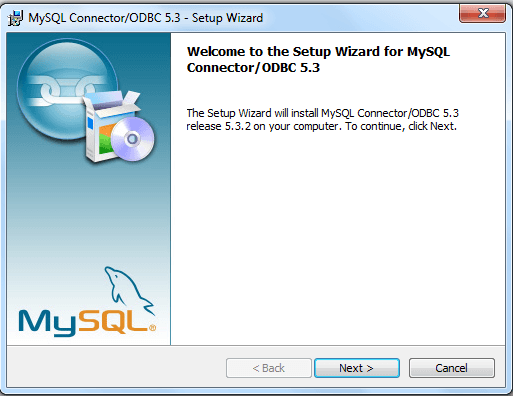

- #Macos sierra odbc manager how to#
- #Macos sierra odbc manager mac os x#
- #Macos sierra odbc manager mac os#
- #Macos sierra odbc manager drivers#
FOSS and commercial drivers alike build and work fine, with no cost for use of the iODBC SDK. You building against iODBC, whether Frameworks or dylibs, does not limit user choice of drivers in any way. Once built, the binaries don't usually care, as long as the library names and locations are consistent, as they are in a default environment. Homebrew and MacPorts projects do tend to have different variants for linking to iODBC vs unixODBC, because these are built on each user's machine, and the user might prefer to link to Frameworks vs dylibs, or to dylibs in /usr/lib vs /lib.
#Macos sierra odbc manager mac os#
iODBC has full macOS-native UI implementation (and has since roughly Mac OS 9.0), which differs from unixODBC. IODBC and unixODBC are generally API-equivalent from the application and driver perspective. Your comment about "the open source unixODBC" suggests that you may not realize that iODBC is also open source and is also here on github. IODBC remains the default in macOS, as of 10.13.3.Īpple did stop shipping their home-grown ODBC Administrator.app some while ago, and told us (i.e., OpenLink) that they would encourage users to shift to the iODBC Administrator.app (and iODBC Administrator64.app) which we had provided from day one.Īpple never did ship the Frameworks build of iODBC, for reasons we were never told, which remains surprising and frustrating, as many significant apps (not least being Microsoft Office) build against and require the Frameworks they cannot operate with just the dylibs - which also means they cannot run with just unixODBC, in its standard build.

Maybe there is some way to build 2 different dynamically loadable backends, and require some initial configuration when connecting? vs ? Perhaps on macOS I provide two different packages, specific to the driver manager? If there was an easy way to add flags to pip requirement files it would be easier. Users of pip may not be familiar with things as simple as setup.cfg files, etc. I like to get paid for my work too, but a lot of the drivers use the open source unixODBC. I'm very hesitant to make iODBC the default, particularly with pip provided binaries.

Simply using the first one found leads to tons of questions since it might not be the one the user actually wants.
#Macos sierra odbc manager how to#
I would be happy to support both on macOS, but will need to figure out how to support both cleanly. They also added deprecation warnings to the header files. IODBC used to be the default DM for macOS builds, but I thought Apple stopped shipping it quite a while back.

We do not expect you'll have much if any difficulty, but if you do, please use open a Case in our Support System. (Of course, you can continue providing the UnixODBC-linked version, but this should be a user-chosen-option, not a forced break from everything else macOS.) We ( OpenLink Software - maintainers of iODBC since the 1990s, vendor of ODBC drivers and various other products, and my employer) would like to help you get pyodbc built and working properly with the macOS-native iODBC (whether you link to the dylibs or the Frameworks we do recommend the latter, as chosen by most macOS GUI developers, including Microsoft).
#Macos sierra odbc manager mac os x#
IODBC has been built and updated for compatibility with all versions of Mac OS X since 10.0, provided as both dylibs and Frameworks. UnixODBC has no macOS-native implementation (Frameworks, admin apps, etc.), while iODBC has always provided fully-native implementation (Frameworks, dylibs, admin apps, sample apps, etc.).Īpple has shipped iODBC libraries (in dylib form) in macOS (a/k/a OS X, a/k/a Mac OS X) since 10.3.x, and continues to do so in 10.13.x. UnixODBC does not make use of the default macOS ODBC configuration file and driver locations ( /Library/ODBC/ and ~/Library/ODBC/), among other departures from conventional Mac operation. Pyodbc documentation all pushes unixODBC, which requires extra installation on macOS. Pyodbc on macOS doesn't work with ODBC drivers that work with iODBC and with their other macOS apps (Microsoft Excel, Tableau, Stata, etc.).


 0 kommentar(er)
0 kommentar(er)
